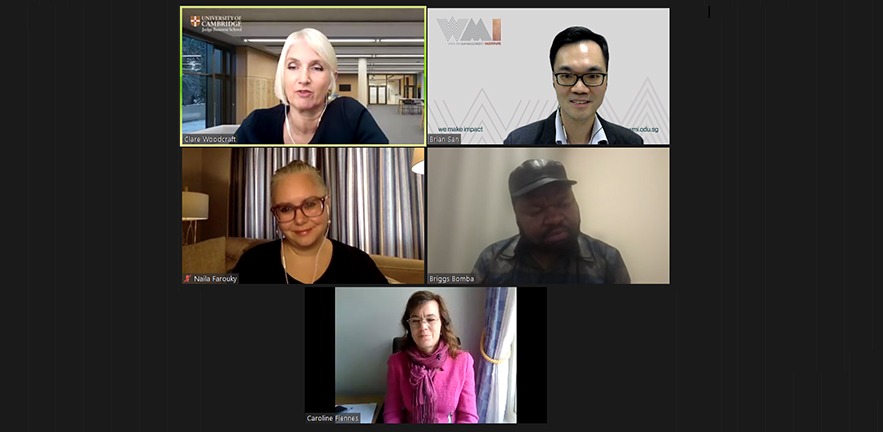By Jack Lilley, Communications Manager at the Centre for Strategic Philanthropy
The series unites global practitioners and academics in emerging markets with their Global North counterparts to build a movement for change around philanthropic power dynamics.
#ShiftThePower – Make it Flexible: Building Resilience – 2 September 2021
Continuing on from the success of the first 2 editions, Shifting the Power Balance and moving Beyond Grants, the third edition entitled Make it Flexible: Building Resilience welcomed Moukhtar Kocache, Civil Society and Philanthropist Consultant and Advisor for the RAWA: Creative Palestinian Communities Fund, Chilande Kuloba-Warria, Founder and Managing Director for the Warande Advisory Centre and Kennedy Odede, President and CEO of Shining Hope for Communities (SHOFCO).
The session highlighted the need for governments and donors to instil trust in their recipients and allow for greater flexibility on how philanthropic capital can best be deployed, including the value in local knowledge and expertise. When asked about increasing resilience in philanthropy, Moukhtar referenced the “need to increase expenditure flows and harness creativity for grantees” and continued to convey his disappoint that as practitioners we are still having the conversation on the need for unrestricted funds.
Building on this theme, Kennedy referenced the struggle Africa has faced during COVID-19 (coronavirus) and how initial actors (for the most part) packed up and left, leaving local organisations to pick up the pieces. This demonstrates the importance and value of working with local voices to better understand the needs of local individuals and build resilience.
Likewise, Chilande pointed out how restricted development funding forces local organisations to become something they are not and how the focus on upwards accountability and the marketing needs of donors, over the desire to build strong and resilient local organisations is exhausting. So why do Global North actors continue to set out strict guidelines and endless red tape? Surely there is now enough evidence to suggest we must learn to think outside of the box.
The episode also included a fantastic range of questions from our live audience as well as input and expertise from CSP’s Executive Director, Clare Woodcraft.
#ShiftThePower – Revolutionising Transparency in the Third Sector – 7 October 2021
The fourth session was hosted on 7 October 2021 and was developed around the need to Revolutionise Transparency in the Third Sector, especially the need to improve better data disclosure and accountability around performance.
The Centre welcomed Briggs Bomba, Programs Director for TrustAfrica, Chief Executive Office of the Arab Foundation Forum, Naila Farouky, Director of Giving Evidence and fellow of the Centre, Caroline Fiennes, and Brian San, Executive Director for Partnerships and Strategic Development at the Wealth Management Institute.
Focusing on themes of funding and ownership, the session raised crucial points around liabilities in previous philanthropic deployment, particularly over the need for “funders for be more transparent about decades of failed results and the need to acknowledge that communities better understand local needs”, an ongoing struggle Briggs as witnessed first-hand across Africa.
Equally, Brian referenced the issue of data sharing as a driving factor in where funding is deployed as small, local organisations are often most committed to urgent local needs, and therefore needing the most funding. But instead, “we see a bias towards larger organisations that have more data and information ready to share”.
Naila expanded on this point, referring to ongoing trust issues between governments and the civil society sector, especially over data sharing and the narrative which organisations choose to work with, believing that only by owning the data can they tell our own story.
Caroline, whose work with Giving Evidence looks to make charitable giving more effective by advancing practices centred on sound evidence, agreed with her fellow panellists, adding that as non-profits get bigger, it becomes easier for them to adhere to the ‘game’ of transparency which caters to Global North structures. It is crucial to understand and address this in order to better support grassroots organisations.
A consistent theme across the sessions and speakers is the need to understand the change process. In the wake of COVID-19 (coronavirus), all models of philanthropic deployment need to be fluid and flexible and we urge large funders to work organically with local communities and organisations. This is to better understand not just where but also why funding is required.


